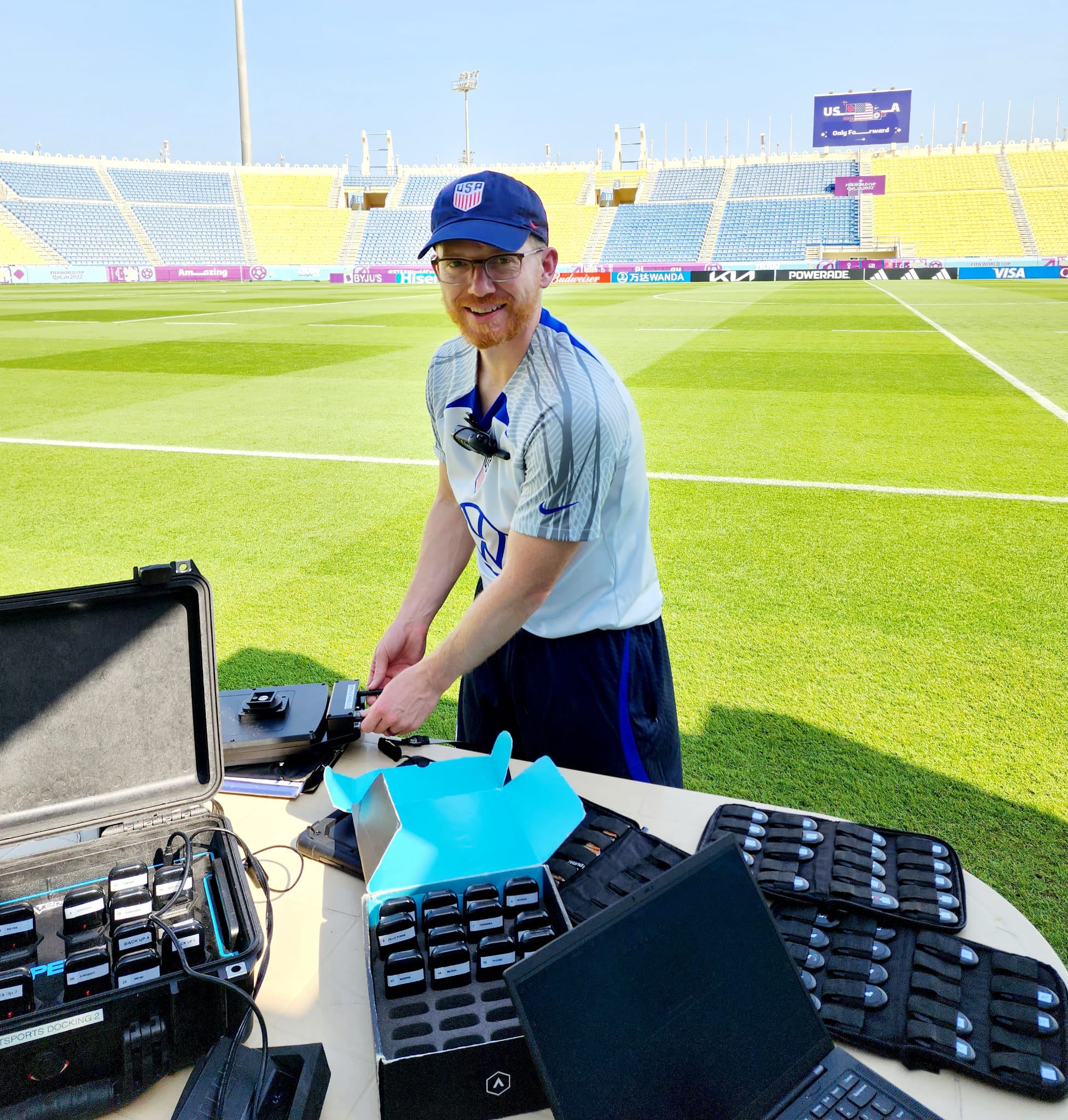“At the end of the day, it’s about making less wrong decisions, not just the right decisions.”
Jordan Webb
What You will learn
- How a player-first approach can benefit the management of national and club level athletes.
- The role of data and technology in monitoring and improving player performance.
- Practical applications of performance analytics in predicting and managing player loads.
In this conversation, Jordan Webb, a sports scientist at U.S. Soccer, discusses the challenges of managing international soccer players and the integration of data in decision-making. He shares his experience in using GPS data to evaluate player performance and training load, as well as the importance of building relationships with clubs and players.
Webb also emphasizes the limitations of injury prediction and the need to focus on making informed decisions rather than relying solely on data. He highlights the challenges of outcome bias and the pressure to prove the value of experience in a data-driven world. Jordan shares insights on decision-making in high-performance sports and the importance of building relationships and prioritizing wellness. He emphasizes the need for practitioners to understand power dynamics and influence tactics in order to navigate complex environments.
Webb also discusses his pursuit of a PhD in decision-making and his research on improving decision-making processes in high-performance organizations. He highlights the value of being present and mindful in both personal and professional settings. Webb shares his favorite cities and stadiums he has traveled to and recounts memorable moments in the locker room.
Listen here – Finding Small Wins Podcast:
023 | Jordan Webb: Innovative Practices in Sports Science
Key Takeaways
- Managing international soccer players requires building relationships with clubs and players and integrating data from various sources.
- GPS data is used to evaluate player performance and training load, but injury prediction remains challenging.
- The focus should be on making informed decisions based on the quality of judgment and process, rather than relying solely on data.
- Outcome bias and the pressure to prove the value of experience can impact decision-making in sports.
- Evaluating the quality of judgment and process requires aligning heuristics and experience with data and managing expectations. Build relationships and prioritize wellness to show up for the people you work with and care about
- Understand power dynamics and influence tactics to navigate complex environments
- Be present and mindful in both personal and professional settings
- Improve decision-making processes in high-performance organizations
- Enjoy the perks of traveling to different cities and experiencing different stadiums
- Create memorable moments in the locker room that foster camaraderie and celebration

episode timeline
00:00 Introduction and Background
10:02 Integrating Data in Decision-Making
34:12 Making Informed Decisions Based on Judgment and Process
41:51 Building Relationships and Prioritizing Wellness
50:49 Preparing Athletes with Different Starting Points
01:00:46 Prioritizing Wellness for Personal and Professional Success
01:08:20 Experiencing the Perks of Traveling and Representing the US
01:19:04 Creating Memorable Moments in the Locker Room



